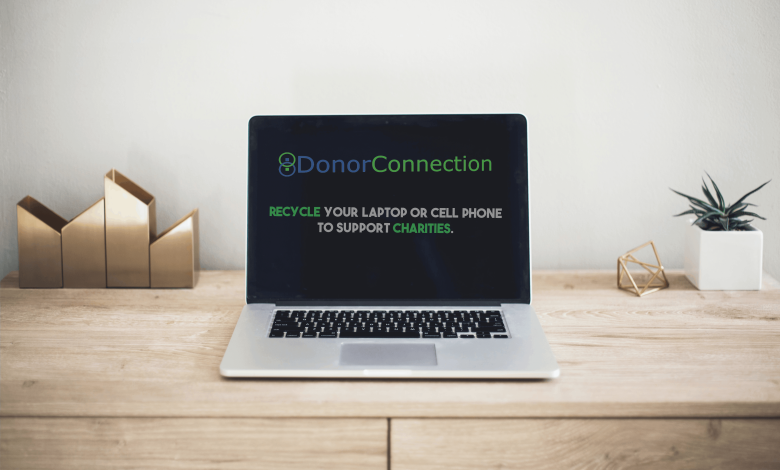What are the Social Benefits of Computer Donation?

In today’s digital era, access to computers and the internet has become essential for education, employment, and overall societal development. Unfortunately, not everyone has the means to afford this technology, leading to a digital divide that further exacerbates existing social inequalities. However, organizations like Donor Connection are working diligently to bridge this gap by facilitating computer donations and bringing numerous social benefits to communities in need.
Introduction
In this article, we will explore the social benefits of computer donation and shed light on the transformative impact it has on individuals, educational institutions, and communities. By repurposing old computers and making them accessible to those who lack resources, Donor Connection plays a vital role in empowering students, fostering digital literacy, and contributing to sustainable development.
The Importance of Computer Donation
2.1 Bridging the Digital Divide
The digital divide refers to the gap between individuals and communities with access to digital technologies and those without. By donating computers, individuals and organizations can actively participate in narrowing this divide. Access to computers enables underserved populations, such as students from low-income backgrounds or rural areas, to connect with the world of knowledge, educational resources, and opportunities that would otherwise be inaccessible to them.
2.2 Empowering Education
Computer donations have a profound impact on education. They provide students with the tools they need to engage in online learning, research, and collaborative projects. With computers, students can explore diverse subjects, access e-books and educational software, and develop digital skills that are crucial in today’s workforce. By integrating technology into classrooms, educational institutions can create an environment that fosters creativity, critical thinking, and digital literacy.
2.3 Enhancing Career Opportunities
In today’s job market, digital skills are increasingly in demand across various industries. By donating computers, individuals contribute to expanding the pool of skilled workers. Students who have access to computers from an early age can develop proficiency in using digital tools and gain a competitive edge in their future careers. Computer donations open doors to online job opportunities, remote work, and access to vocational training, enabling individuals to pursue better employment prospects.
Social Benefits of Computer Donation
3.1 Access to Educational Resources
Computer donations enable students to access a vast array of educational resources. With computers, they can explore online libraries, conduct research, access educational websites, and engage in virtual learning platforms. This access to a wealth of information enhances their learning experience, expands their knowledge, and allows them to explore subjects beyond the confines of traditional textbooks. Computer donation empowers students to become self-directed learners and equips them with the necessary tools to succeed academically.
3.2 Skill Development and Digital Literacy
By donating computers, individuals contribute to the development of digital skills and promote digital literacy within communities. Access to computers enables individuals to learn essential computer skills, navigate the internet, and utilize various software applications. These skills are vital for success in the modern world, as they open doors to employment opportunities and enable individuals to adapt to a technology-driven society. Computer donations foster a sense of empowerment and equip individuals with the tools they need to navigate the digital landscape.
3.3 Community Development and Empowerment
Computer donations have a significant impact on community development and empowerment. By providing computers to community centers, libraries, and non-profit organizations, access to technology becomes available to a broader audience. This empowers individuals to engage in online activities, connect with others, and access resources that can improve their lives. Moreover, computer donations contribute to the creation of inclusive spaces where individuals can learn, collaborate, and contribute to the betterment of their communities.
3.4 Environmental Impact
Donating old computers promotes sustainability and reduces electronic waste. Rather than discarding outdated devices, donating them to organizations like Donor Connection ensures that they are repurposed and put to good use. By extending the lifespan of computers through refurbishment and recycling, we reduce the demand for new devices, thereby minimizing the environmental impact of electronic waste. Computer donation aligns with the principles of sustainability, allowing us to maximize the utility of existing resources while minimizing our carbon footprint.
Donor Connection: Making a Difference
4.1 How Donor Connection Works
Donor Connection is a dedicated organization that facilitates the process of computer donation. They work closely with individuals, businesses, and educational institutions to collect old computers and redistribute them to those in need. Donor Connection ensures that donated computers are securely processed, refurbished if necessary, and made available to students and communities lacking access to technology.
4.2 Supporting Students and Schools
One of the primary focuses of Donor Connection is to support students and schools by providing them with the necessary tools for educational success. Through computer donations, Donor Connection helps bridge the digital divide, ensuring that all students have equal opportunities to learn and thrive. By partnering with educational institutions, Donor Connection identifies the specific needs of students and tailors their donations to match those requirements.
4.3 Promoting Sustainability and Recycling
Donor Connection places a strong emphasis on sustainability and recycling. They understand the environmental impact of electronic waste and actively promote responsible disposal practices. Donated computers that cannot be refurbished are safely recycled, ensuring that valuable materials are extracted, and harmful substances are properly disposed of. By choosing Donor Connection as your donation partner, you contribute to a greener and more sustainable future.
Steps to Donate Computers
5.1 Preparing Your Old Computers
Before donating your old computers, it’s important to ensure that they are properly prepared. This includes securely wiping all personal data from the devices to protect your privacy. Back up any important files and perform a factory reset to restore the computer to its original state.
5.2 Finding Donation Centers
To donate your old computers, research local donation centers or organizations like Donor Connection that specialize in computer donations. These organizations will provide guidelines on how to submit your donation and may offer pickup services or drop-off locations for convenience.
5.3 Ensuring Data Security
Protecting your personal data is crucial when donating computers to ensure data security. Before donating, ensure that all personal information has been securely erased from the computers. Use data wiping software or consult with a professional to ensure complete data removal. This step is essential to protect your privacy and prevent any potential misuse of your personal information.
5.4 Supporting Refurbishment and Recycling
When donating computers, consider supporting refurbishment and recycling efforts. Organizations like Donor Connection have processes in place to refurbish old computers, making them usable for those in need. If a computer cannot be refurbished, it can be safely recycled to extract valuable materials and minimize environmental impact. By supporting these initiatives, you contribute to the sustainable use of resources and the reduction of electronic waste.
Conclusion
Computer donation has far-reaching social benefits. It bridges the digital divide, empowers education, enhances career opportunities, and promotes community development. Organizations like Donor Connection play a vital role in facilitating computer donations and making a positive impact on individuals and communities. By donating your old computers, you can contribute to a more inclusive and equitable society, where access to technology is available to all.
FAQs
7.1 How can I donate my old computer to Donor Connection?
To laptop donation to Donor Connection, visit their website and follow the instructions provided. They will guide you through the donation process, including any specific requirements or guidelines.
7.2 Are there any specific requirements for computer donations?
While specific requirements may vary, it is generally recommended to donate computers that are in working condition or can be refurbished. Donor Connection may have guidelines regarding the age and specifications of donated computers, so it’s advisable to check their website or contact them directly for more information.
7.3 What happens to the donated computers?
Donated computers received by Donor Connection undergo a careful assessment. If a computer can be refurbished, it will be repaired and made available to those in need. If a computer cannot be refurbished, it will be safely recycled to extract valuable materials and reduce electronic waste.
7.4 Can I get a tax deduction for my computer donation?
Tax deductions for computer donations vary depending on the laws and regulations of your country. In many cases, charitable donations, including computer donations, can be tax-deductible. It is recommended to consult with a tax professional or refer to the relevant tax authorities for accurate information regarding tax deductions.
7.5 How else can I contribute to bridging the digital divide?
Aside from computer donation, there are several other ways to contribute to bridging the digital divide. You can volunteer your time and expertise to teach digital skills, support organizations working in this field, advocate for policy changes that promote digital inclusion, or donate funds to initiatives aimed at providing technology access to underserved communities.









